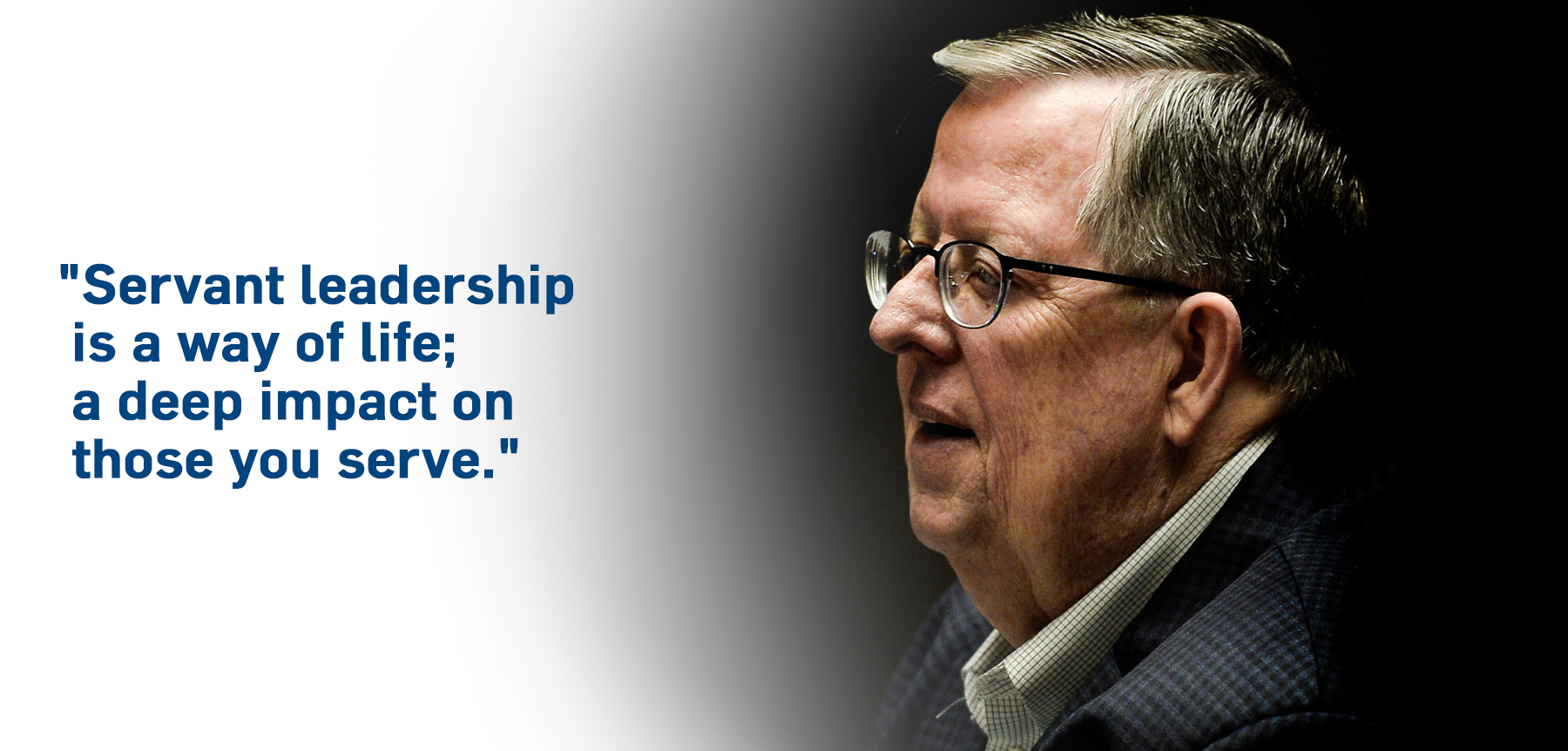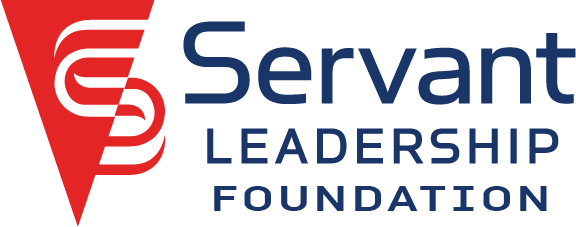I am often asked why we started the Servant Leadership Institute (SLI). We were encouraged by many from inside and outside our company to share our story and experiences of implementing SL at our radio manufacturing company, Datron World Communications, Inc. The success we experienced after implementing SL was beyond what we expected and the response from our employees, suppliers and customers was amazing. People that knew us thought Datron was a great business case on the results SL could generate. As I shared in my latest book, The Art of Servant Leadership II, I did not become an advocate for SL until late in my career. However, my desire to have a training/education group within the companies I worked came earlier in my career from my first employer, Disneyland.
I grew up in the small town of Tustin in Southern California. When I was in high school the coolest job you could get was working for Disneyland in Anaheim. I was 18 years old when I finally started my dream job as a “sweeper.” I was required to wear an all-white uniform with black shoes, used a small broom sweeper in one hand and a portable trash container in the other. My job was to keep my assigned area in the Park as clean as possible. I was assigned to work in Fantasyland. I remember my first day on the job did not involve any time working in the Park. It was spent at the Disney University attending their required training for new hires. The Disney University taught us about the Disney way, why they do what they do, how we were to dress while “on stage” (the Disney way of saying while working in sight of the public), what we would wear, how our hair would be cut and how you would conduct yourself while in the public eye.
I never forgot the training I received at the Disney University. After my first year with Disneyland, I was required to return to the Disney University for a refresher course. This was an annual requirement that I always looked forward to. After I finished college, I left Disneyland to accept a position in leadership as the Accounting Manager for a small company in Irvine, California. Over the years, I would be promoted into higher leadership positions and always had a desire to provide training similar to what I experienced. When I would budget for training, I would always dream about a “University” just like the one at Disneyland that invested their time and talents training employees like me. In my corporate career, prior to SL, the training budget was always the first expense to be reviewed, reduced and at times completely eliminated. Later in life, I would start to realize that training was actually an investment in someone else's life. The desire was there to invest in others but I didn’t get serious about starting a “University” type training center until I worked at Datron World Communications.
I started working for Datron in October 1997, as the Vice President of Finance and within two years became the VP of Finance and Operations. The Human Resources department was part of my organization and in 2000, I started talking to our Manager of Human Resources about starting a Datron University. My idea was based on what I had experienced at the Disney University. I wanted to provide training for employees to help them with their work. I also wanted to include some life training, such as financial management, retirement planning and health education for our employees. We spent several years talking about it, did some planning and held one or two classes/courses but never really got it off the ground until I was able to purchase Datron from my employer in 2004.
Art Barter and Ken Blanchard during the 2016 Conference
It was April 2003, when I was first exposed to SL after meeting Ken Blanchard at my church. Ken was invited to speak on leadership at what we called the “Spring Series”. We invited special guest speakers each month that spring to teach different subjects to those in attendance. I met Ken personally when he spoke on a Wednesday night. During his talk, he challenged me to be a servant leader. In fact, he told me if I really believed what I believe then being a servant leader was not an option. I started my own journey in SL that night. By the end of the year, I had a plan on paper to create a servant leader department within Datron. In November of 2004, I was able to purchase Datron from my employer and started the journey of leading a company with SL principles. After buying the company, we immediately began changing the culture of the company. Datron was established as a company in 1971, so it already had a culture -- one that had been under the power or positional leadership model for years. I first changed the mission and purpose of the company with the help of Jeanne McGuire, an organizational consultant. She has worked with me at Datron on our SL culture since 2004. She helped the senior team develop our mission and purpose as well as our core values. In 2005, we started the journey of changing the culture of the company and planned to establish the Datron University. In late 2005, we had made some progress. I wasn’t comfortable yet calling servant leadership, servant leadership. Nor was I comfortable about sharing my faith with the leadership team, or even letting the team know why I was so dedicated to SL. I finally decided that I had to let the leadership team know why I was doing what I was doing, and to let them know it was my faith that was driving my belief in SL. I also decided to share with them that my faith was personal to me, that I had not been put in the CEO position at Datron to convert them to my faith, or require them to be religious. Our values, mission and purpose at Datron require us to have a heart to help people and to do it the right way. That requirement continues today, Datron looks for people that have a desire to serve others.
In March 2008, I hired Tony Baron to work part-time (a minimum of ten hours per week) in our SL department at Datron World Communications. He continued to pastor his small church in Oceanside, which remained his primary job. I had met Tony several years earlier when he became one of my spiritual advisors. At the time he and I met, I was under the spiritual authority of Pastor Shawn Mitchell at my home church, New Venture Christian Fellowship. Tony became an additional spiritual advisor for me, augmenting my spiritual learning at New Venture. Most of Tony’s career prior to his ministry work was spent in the consulting world helping organizations with workplace violence prevention, in which he has extensive knowledge and is considered a subject matter expert.
SLI was formed in 2008, as a for-profit corporation in the State of California. I was the founder of the Institute and held the President and CEO title at startup and have held the CEO position to this day. Funding for the Institute comes from Lori (my wife) and myself. We believe SL is our calling and you can’t delegate your calling to others or ask others to fund it, your calling is your responsibility. Tony Baron was President of the Institute from March 2009 to November 2012. His primary function as President was teaching and writing. I remained the CEO with overall strategic and operational responsibility for the Institute. Tony continued his role as Pastor with his church and also became active in leadership within the Anglican Church in North America. John Goehring, the CFO at Datron, was also the Institute’s CFO and Lori Barter, my wife, was the Secretary. At the time Tony joined us, Datron had been on its SL journey for four years. During his tenure as our President, we allowed him to focus on his gifts of teaching and writing. As an employee of Datron and commissioned by Lori and me, Tony wrote The Art of Servant Leadership based on hours of interviews he conducted with me documenting the Datron story and my transformation journey as the corporate leader. After The Art of Servant Leadership was released, we agreed to have Tony, again as a Datron employee, write a spiritual version about SL called The Cross and the Towel.
We had our first Servant Leadership Conference in 2010, at a hotel on Harbor Island in San Diego. At the time, I was a member of an organization called the Chief Executive Network (CEN), a group of senior leaders in industry helping each other through the challenges of running both public and private companies. I really liked the approach they took to their conferences: no more than one and half days in length, focused on content and relationships and they always ended on time. I decided to model the SLI conference after those I had experienced at CEN.
Attendees during 2010 Conference
I also believed that leaders learn best from speakers that focused on telling real life stories of changes made in their companies which created the largest impact on inspiring others to change while at the same time achieving amazing results. We decided our conferences would focus on other people and not ourselves. We have consistently sold out each and every year since we started. In 2015, I was able to convince John Maxwell, Ken Blanchard and Stephen M.R. Covey to attend and speak at our conference at the same time. We learned just before the conference that these three leadership thought leaders had never been on the stage together at the same time. History in the making! What a great time we had together that year; and most importantly, we inspired and equipped a record number of attendees.
In November 2013, Robin Swift became our General Manager after Tony Baron resigned to take a full time teaching position at Azusa Pacific University. Robin had joined the Institute in October 2011, as our Director of Client Services. In February 2016, Robin became the President of the Institute.
SLI chose to focus on helping leaders implement SL. We develop content around this topic and share our experiences (both personal and professional) on what it takes to transform yourself and your organization to focus on serving others. I have been very fortunate to have Ken Blanchard and John Maxwell as mentors through my own transformation, and recently over the past several years to have Stephen M.R. Covey in my life. Stephen and I have worked together teaching SL through The Speed of Trust.
Art sitting with his mentors: John Maxwell, Ken Blanchard, Stephen M.R. Covey, and Cheryl Bachelder during 2015 Conference
The Institute has always taken pride (OK, I know that is not a good SL trait in working with our clients to develop programs that work for them within their own organization. We believe that any organization that takes on changing its culture needs to be self-sustaining, not dependent on individuals or organizations outside of their company. In 2014, we worked with a client to develop a “Lunch and Learn” program for them to teach the “Nine Behaviors of a Servant Leader” to a core group of 60 leaders. We first helped in developing what we like to call “Behavior Subject Experts” (BSE). A BSE was selected to teach each of the SL behaviors. We developed curriculum that includes slide decks and teaching workbooks for one hour lunch sessions where they could focus on each behavior over several weeks. We supported and trained each BSE. The program was a success and continues today.
SLI Trainer Alex Fairman in action during CSLA class.
In 2015, we were asked to be a partner with the City of Carlsbad in developing and participating in the Carlsbad Student Leadership Academy (CSLA), a program for high school students to learn about themselves in three modules: You School, focused on helping them with their own identification and finding their gifts; Lead School, focused on teaching SL behaviors; and Serve School, focused on giving back to their community and helping others around them. The program is completely funded by the City of Carlsbad. It is exciting to be working with future leaders and teaching them about living their life for the sake of others.
At our 2018 conference, we announced a change to the Institute. We have decided to add a non-profit organization named the Servant Leadership Foundation (SLF). SLI will continue as a for-profit entity. All of the content generated since the inception of the Institute will be available for use and teaching by either organization. Our hope is that with the appropriate level of funding, we will be able to conduct research in SL and teaching methods, develop training materials targeted for the multi-generations in the workplace today and bring together like-minded people with the desire to change the world through SL. We are excited about this change as it will allow us to pursue grants related to SL research, development and training.
At Datron, we invested in and developed our own SL training materials. We could not find any material on SL implementation that we felt would be effective in our multi-cultural, international radio manufacturing company environment. Lori and I invested close to $500,000 developing a training program for SL that included three modules of 15 hours each. We also decided that the SL training at Datron should be given to all employees. We developed groups of 15 to 20 people and began the training in 2007. We developed module one that focuses on individual transformation and then module two which focuses on team transformation. After the second module, we hired a consultant from Berkeley, who specialized in evaluating educational programs and their effectiveness, to develop a survey to seek input from our employees regarding the effectiveness of the first two modules. It was also used to determine what module three should include while focusing on implementing what was learned in the first two modules. Each employee at Datron has gone through 45 hours of SL training. In 2016, we developed a refresher course for our employees and concluded the refresher training with all of our employees in 2017.
Based on what we learned from our internal SL training, we developed the “Nine Behaviors of a Servant Leader”. These nine behaviors generated the most significant transformation in our organization and our employees’ lives. We teach the “Nine Behaviors of a Servant Leader” to help others transform their leadership. We wrote the book The Servant Leadership Journal to teach these behaviors by presenting an 18 week journaling experience that will transform you and your organization.
We continue to believe we are called to develop content and teach SL implementation, to share our knowledge about the transformation you will go through, the change in your leadership behaviors that will be required and how others will perceive you and your journey. Our goal is to inspire and equip you to change your leadership mindset to one that is focused on service, not self. SLI and the SLF are here to serve you.
The Nine Behaviors of a Servant Leader
Our hope is these two organizations will continue the work of training and developing servant leaders well after Lori and I are gone from this earth. You will notice that our name is not part of either of these two organizations. We believe that SL is greater than any one individual. We committed from the first day we started on this journey that our name would not be part of the organization. We believe this to be the best “succession” plan for what the Institute and Foundation are called to do.
Art Barter
Founder and CEO of SLI
Owner and CEO Datron World Communications, Inc.








